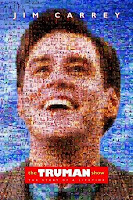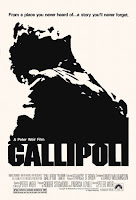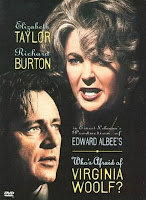



Alternative monitoring of popular culture ~ broadly defined ~ in the pursuit of deeper understanding
 Sam Mendes doesn't direct a lot, but when he does the results are masterful. American Beauty, Road to Perdition, Jarhead, and Revolutionary Road were all so sharply envisioned and executed that in each instance I felt transported. I was transported by Mendes' latest film, too, but in a different way. I was not so much transported to another place, although that was accomplished. I was transported into a variety of different marital and parental realities.
Sam Mendes doesn't direct a lot, but when he does the results are masterful. American Beauty, Road to Perdition, Jarhead, and Revolutionary Road were all so sharply envisioned and executed that in each instance I felt transported. I was transported by Mendes' latest film, too, but in a different way. I was not so much transported to another place, although that was accomplished. I was transported into a variety of different marital and parental realities. Transformers: Revenge of the Fallen is an explosive war movie that is substantially more enjoyable because Ramon Rodriguez, left, and Glenn Morshower, below, are in it. Rodriguez absolutely pops off the screen as star Shia LaBeouf's new college roommate, Leo, who is a geek conspiracy theorist. Rodriguez is also appearing in the remake of The Taking of Pelham 1 2 3. I first noticed Rodriguez in The Wire; he played Omar Little's last squeeze. And Morshower is one of the more recognizable faces in film and on television, IMO. From 24 to Friday Night Lights, he exudes masculine respectability. Morshower plays General Morshower in the latest Transformers.
Transformers: Revenge of the Fallen is an explosive war movie that is substantially more enjoyable because Ramon Rodriguez, left, and Glenn Morshower, below, are in it. Rodriguez absolutely pops off the screen as star Shia LaBeouf's new college roommate, Leo, who is a geek conspiracy theorist. Rodriguez is also appearing in the remake of The Taking of Pelham 1 2 3. I first noticed Rodriguez in The Wire; he played Omar Little's last squeeze. And Morshower is one of the more recognizable faces in film and on television, IMO. From 24 to Friday Night Lights, he exudes masculine respectability. Morshower plays General Morshower in the latest Transformers.
 The Truman Show (1998)
The Truman Show (1998) Gallipoli (1981)
Gallipoli (1981) The Color Purple (1985)
The Color Purple (1985) I caught this Nicolas Cage film at the 2 buck cinema this weekend and was surprised by the movie's attempt to merge (not necessarily reconcile) the divergent opinions about the place of science and faith (read evolution and creation) in our lives. Cage plays an MIT physics professor and son of a minister, whose faith has been shaken not so much by science but by the loss of his wife and the mother of his doe-eyed son. It is the son, Caleb, who receives an odd letter out of a 50-year-old time capsule. Written by a spooky, stringy-haired schoolgirl, the letter is a string of numbers that Cage's character deciphers to discover it's not just a random series but information about catastrophes, natural and manmade. Yes, it's ridiculous but the ending to this mess can be viewed as both apocalyptic and redemptive. In any case, it's worth 2 bucks.
I caught this Nicolas Cage film at the 2 buck cinema this weekend and was surprised by the movie's attempt to merge (not necessarily reconcile) the divergent opinions about the place of science and faith (read evolution and creation) in our lives. Cage plays an MIT physics professor and son of a minister, whose faith has been shaken not so much by science but by the loss of his wife and the mother of his doe-eyed son. It is the son, Caleb, who receives an odd letter out of a 50-year-old time capsule. Written by a spooky, stringy-haired schoolgirl, the letter is a string of numbers that Cage's character deciphers to discover it's not just a random series but information about catastrophes, natural and manmade. Yes, it's ridiculous but the ending to this mess can be viewed as both apocalyptic and redemptive. In any case, it's worth 2 bucks.
 Psycho (1960)
Psycho (1960) A Clockwork Orange (1971)
A Clockwork Orange (1971) Midnight Cowboy (1969)
Midnight Cowboy (1969)
 Who's Afraid of Virginia Woolf (1966)
Who's Afraid of Virginia Woolf (1966) The Boys in the Band (1970)
The Boys in the Band (1970) Denzel Washington and John Travolta are the only reasons to see this remake of The Taking of Pelham 123. Though the writing is uneven, and in several spots grating and disappointing, I found the banter between Washington's Walter Garber, a dispatcher pressed into service as a hostage negotiator by Travolta's crazed urban terrorist Ryder, quite entertaining, the best thing in the film. Conscientious performers who are given weak material often rise above the script to deliver convincing, if not award-winning performances. Such is the case here.
Denzel Washington and John Travolta are the only reasons to see this remake of The Taking of Pelham 123. Though the writing is uneven, and in several spots grating and disappointing, I found the banter between Washington's Walter Garber, a dispatcher pressed into service as a hostage negotiator by Travolta's crazed urban terrorist Ryder, quite entertaining, the best thing in the film. Conscientious performers who are given weak material often rise above the script to deliver convincing, if not award-winning performances. Such is the case here.

 Following inferences that could be challenged by the slightest bit of contradictory evidence, Ernest L. Wiggins of the USC School of Journalism and Mass Communications has come to STRONGLY believe in the existence of a natural phenomenon that prevents reply e-mails from escaping their senders.
Following inferences that could be challenged by the slightest bit of contradictory evidence, Ernest L. Wiggins of the USC School of Journalism and Mass Communications has come to STRONGLY believe in the existence of a natural phenomenon that prevents reply e-mails from escaping their senders. This seems to me to be a black Catholic depiction. Maybe it's being used by missionaries in Africa; that's where most of the church's growth is happening.
This seems to me to be a black Catholic depiction. Maybe it's being used by missionaries in Africa; that's where most of the church's growth is happening.


 Todd Phillips's "The Hangover" is a movie about men behaving badly in some pretty creative ways. Phillips, who has a Hitchcockian cameo early in the film, has taken the standard bachelor party in Vegas formula and turned it into a whacked out detective story in which three blighted friends try to put together the pieces of a night of drunken revelry during which they lost the groom-to-be. Bradley Cooper (Allias), Ed Helms (The Office) and Zach Galifianakis play best friends to Justin Burtha (National Treasure) and encounter an assortment of crazed characters in their quest to figure out why they're so bloody and beaten the morning after. Mike Tyson's cameo was eerie in light of his recent personal tragedy.
Todd Phillips's "The Hangover" is a movie about men behaving badly in some pretty creative ways. Phillips, who has a Hitchcockian cameo early in the film, has taken the standard bachelor party in Vegas formula and turned it into a whacked out detective story in which three blighted friends try to put together the pieces of a night of drunken revelry during which they lost the groom-to-be. Bradley Cooper (Allias), Ed Helms (The Office) and Zach Galifianakis play best friends to Justin Burtha (National Treasure) and encounter an assortment of crazed characters in their quest to figure out why they're so bloody and beaten the morning after. Mike Tyson's cameo was eerie in light of his recent personal tragedy.Despite trailers and promos that suggest otherwise, Luca Guadagnino's Challengers is NOT a love story -- at least not in any conventio...
